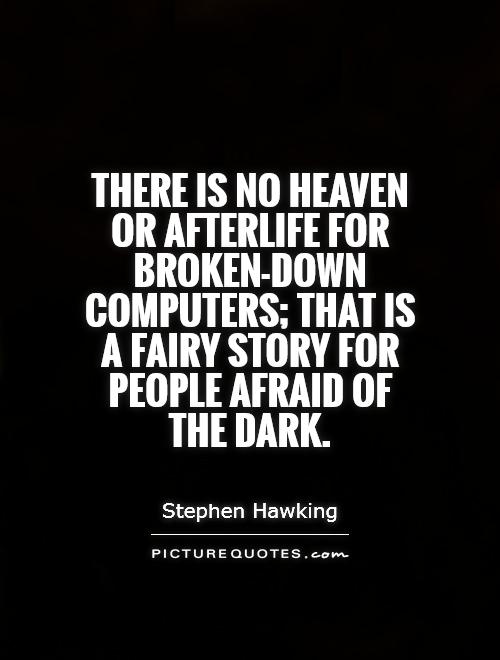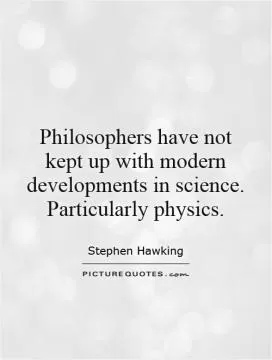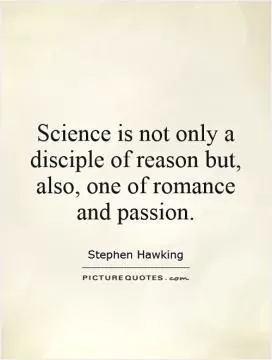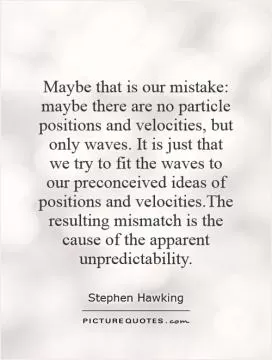There is no heaven or afterlife for broken-down computers; that is a fairy story for people afraid of the dark

Computer QuotesR B QuotesFor People QuotesAfraid Of The Dark QuotesBroken Down QuotesStephen Hawking Quotes
There is no heaven or afterlife for broken-down computers; that is a fairy story for people afraid of the dark
Stephen Hawking, the renowned theoretical physicist and cosmologist, was known for his groundbreaking work on black holes, the nature of the universe, and the origins of the cosmos. He was also known for his atheistic beliefs and rejection of the idea of an afterlife. In his view, there is no heaven or afterlife for broken-down computers; that is a fairy story for people afraid of the dark.Hawking's statement reflects his scientific worldview, which is based on evidence, reason, and logic. He believed that the universe operates according to natural laws and principles, and that there is no need for supernatural explanations or interventions. For him, the idea of an afterlife was simply a comforting myth created by humans to cope with the fear of death and the unknown.
Hawking's atheism was not just a philosophical position; it was also a deeply personal belief that shaped his understanding of the universe and his place in it. As someone who lived with a debilitating motor neuron disease for most of his life, he was acutely aware of the fragility and impermanence of the human body. He saw no evidence to support the existence of a soul or a divine being that could transcend the physical limitations of the material world.
Instead, Hawking saw the universe as a vast and mysterious place, governed by the laws of physics and chemistry. He believed that human consciousness and intelligence were the result of complex biological processes in the brain, and that there was no need to invoke supernatural explanations for the origins of life or the nature of the mind.
In the end, Hawking's rejection of an afterlife was not a denial of the value of life or the importance of human existence. On the contrary, he saw the beauty and wonder of the universe as a source of inspiration and awe. For him, the search for knowledge and understanding was its own reward, and the quest to unravel the mysteries of the cosmos was a noble and worthwhile endeavor.












 Friendship Quotes
Friendship Quotes Love Quotes
Love Quotes Life Quotes
Life Quotes Funny Quotes
Funny Quotes Motivational Quotes
Motivational Quotes Inspirational Quotes
Inspirational Quotes